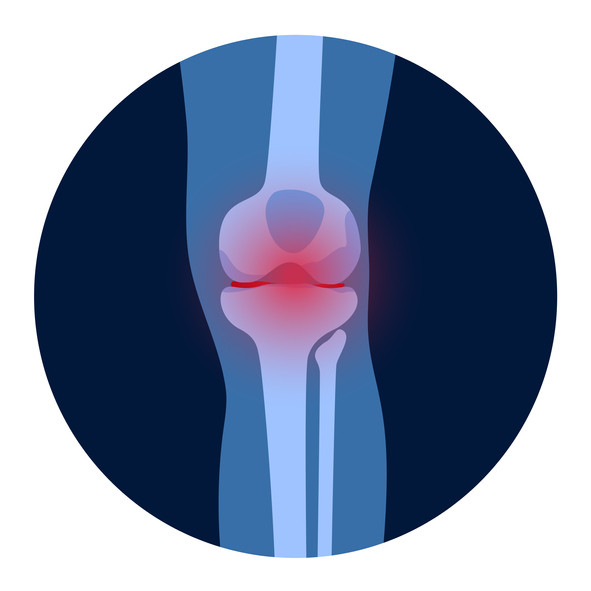
Counting steps is good — is combining steps and heart rate better?

Appendix pain: Could it be appendicitis?

Can saw palmetto treat an enlarged prostate?

How does Ozempic work? Understanding GLP-1s for diabetes, weight loss, and beyond

Zinc: What it does for the body, and the best food sources

Respiratory health harms often follow flooding: Taking these steps can help

Tips to leverage neuroplasticity to maintain cognitive fitness as you age

Can white noise really help you sleep better?

Celiac disease: Exploring four myths

What is prostatitis and how is it treated?
Harvard Health Blog
Read posts from experts at Harvard Health Publishing covering a variety of health topics and perspectives on medical news.
Articles
Beyond trick-or-treating: Safe Halloween fun during the COVID-19 pandemic
Celebrating Halloween by going trick-or-treating or attending a party could be very risky this year. Here are tips to help you and your family stay safe while having fun.
Coping with the loss of smell and taste
Early, tight control of Crohn’s disease may have lasting benefits
Treatment options for Crohn’s disease have evolved, and newer drugs are more effective than previously used ones. Researchers examined different approaches to treatment, based on either symptoms alone or combined with objective evidence of inflammation.
Stopping osteoarthritis: Could recent heart research provide a clue?
Currently no medication can slow the progress of osteoarthritis. And while a reanalysis of a study of people with heart disease suggests a promising approach, more definitive research will be necessary to confirm this.
The tragedy of long COVID
Stress and the heart: Lessons from the pandemic
Doctors have begun to study the effects of COVID-related stress and anxiety on people. A recent study suggests that stress caused by the pandemic may already be affecting heart health.
Fibromyalgia: Exercise helps — here's how to start
For people with fibromyalgia, pain is a part of daily life, and exercising is probably not something they feel like doing. But experts say it's one of the most effective strategies to help manage the condition. So what's the best approach to getting started?
Grandparenting: Navigating risk as the pandemic continues
As the pandemic reshaped lives in March, grandparents had to take heightened safety precautions around seeing their children and grandchildren. With fall here and winter on the way, basic preventive steps have not changed, but some grandparents are finding they need to balance rewards and risk, and that conversations with family members about expectations need to be ongoing.
Cultivating joy as a family
The pandemic has been difficult for everyone, but particularly for families. Everyone is feeling so much uncertainty and stress, but one thing we can do is look for ways to create small moments of joy every day. Games, activities, creativity, being outdoors — there are simple, fun ways to be together and make memories.
Advancing maternal justice on both sides of the Atlantic
The hidden long-term cognitive effects of COVID
Why is music good for the brain?
A study conducted by AARP found correlation between a person’s engagement with music and their opinion of their brain health and cognitive ability. While the study did not involve any objective measure of brain health, music has been shown to activate multiple areas of the brain, and keeping brain pathways active helps keep the brain strong in older age.
New online model identifies which men can have fewer biopsies on active surveillance
During the last decade, more men with favorable-risk prostate cancer that is unlikely to cause symptoms and spread have opted for a monitoring approach called active surveillance (AS) instead of immediate treatment. AS entails routine PSA checks and prostate tumor biopsies, and the cancer is treated only if it progresses. The approach has some drawbacks, […]
As family well-being declines, so does children’s behavior
The COVID-19 pandemic is affecting the mental health of people who have not been sick, and parents are being hit particularly hard. A survey of US parents found that these worsening circumstances also affect children’s behavior.
How to cope when a loved one is depressed, suicidal, or manic
The pandemic has caused a surge in depression. If someone you care about is struggling with depression or bipolar disorder, or you have reason to think the person may be suicidal, there are ways you can help — and caring for yourself is important, too.
New guidelines for aches, pains, and strains
When a minor injury leads to soreness or discomfort, what’s the best first treatment choice? The American College of Physicians and the American Academy of Family Physicians recently developed new recommendations based on reviews of more than 200 studies involving nearly 33,000 subjects.
Staying positive during difficult times
The trials and challenges of this year are weighing heavily on many people, but attempting to employ positive psychology to put personal struggles in context, and accepting the ups and downs life brings, can ultimately increase positive feelings and provide perspective.
Whole grains or no grains? Food labels can be misleading
Food labels contain useful information about the nutritional value of the product, but a recent study found that consumers are more likely to be swayed by potentially misleading language on the front of a package than they are to pay attention to the information contained in the Nutrition Facts panel. Knowing how to interpret this information can help consumers make healthier choices.
Sick child this school year? Planning for the inevitable during a pandemic
Treating mild hypothyroidism: Benefits still uncertain
More than 10 million adults in the US have hypothyroidism — when the thyroid gland fails to produce enough thyroid hormone to meet the body’s needs — but the vast majority of these cases are considered mild. Whether or not to treat mild hypothyroidism is an ongoing debate. There is a possible link between mild hypothyroidism and coronary artery disease, but researchers found that treating it in older people did not provide any benefit.
Managing the new normal: Actively help your family weather the pandemic
More than six months into the pandemic, it’s clear that we are going to be living with it for some time, and that expectations of life soon returning to normal are not realistic. This is a good time to assess the adjustments we’ve made and see how we can make different choices to get ourselves and our families through the challenge.
Lifestyle medicine for all: Healthy food comes first
Lifestyle medicine is an evidence-based practice of helping people adopt and sustain healthy behaviors, such as eating a plant-based diet, which can lower inflammation, as well as the risk of many chronic diseases. Some doctors and organizations are working toward making lifestyle medicine more accessible.
CBD for chronic pain: The science doesn’t match the marketing
CBD, a non-psychoactive component in cannabis, is emerging as a promising pharmaceutical agent to treat pain and other conditions. Unfortunately, few studies in humans have examined its effectiveness, and the cannabis industry’s profit motive is driving a wave of dubious claims about what CBD can do.
Cough and cold season is arriving: Choose medicines safely
Millions of Americans get coughs and colds during the winter, and many head to the drugstore to pick up one of the hundreds of common medicines available without a prescription. But those products often contain multiple active ingredients that are potentially unsafe if combined. Here's how to safely choose the right over-the-counter medication for your symptoms.

Counting steps is good — is combining steps and heart rate better?

Appendix pain: Could it be appendicitis?

Can saw palmetto treat an enlarged prostate?

How does Ozempic work? Understanding GLP-1s for diabetes, weight loss, and beyond

Zinc: What it does for the body, and the best food sources

Respiratory health harms often follow flooding: Taking these steps can help

Tips to leverage neuroplasticity to maintain cognitive fitness as you age

Can white noise really help you sleep better?

Celiac disease: Exploring four myths

What is prostatitis and how is it treated?
Free Healthbeat Signup
Get the latest in health news delivered to your inbox!
Sign Up
























